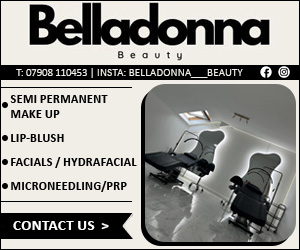08/09/2009
Doctors Call Time On Alcohol Promotion
In a bid to tackle the soaring cost of alcohol-related harm, particularly in young people, the BMA is calling for a total ban on alcohol advertising, including sports events and music festival sponsorship.
In addition, the BMA is calling for an end to all promotional deals like happy hours, two-for-one purchases and ladies' free entry nights.
The new BMA report, "Under the Influence", launched today, also renews the call for other tough measures such as a minimum price per unit on alcoholic drinks and for them to be taxed higher than the rate of inflation.
Dr Vivienne Nathanson, Head of BMA Science and Ethics, said: "Over the centuries alcohol has become established as the country's favourite drug. The reality is that young people are drinking more because the whole population is drinking more and our society is awash with pro-alcohol messaging and marketing. In treating this we need to look beyond young people and at society as a whole."
According to the World Health Organisation (WHO) alcohol is the leading risk factor for premature death and disability in developed countries after tobacco and blood pressure. It is related to over 60 medical conditions, costs the NHS millions of pounds every year and is linked to crime and domestic abuse.
Alcohol consumption in the UK has increased rapidly in recent years, for example, household expenditure on all alcoholic drinks increased by 81 per cent between 1992 and 2006. And at the same time, says the author of the report, Professor Gerard Hastings, never before has alcohol been so heavily promoted.
He said: "Given the alcohol industry spends £800 million a year in promoting alcohol in the UK, it is no surprise that children and young people see it everywhere – on TV, in magazines, on billboards, as part of music festivals or football sponsorship deals, on internet pop-ups and on social networking sites. Given adolescents often dislike the taste of alcohol, new products like alcopops and toffee vodka, are developed and promoted as they have greater appeal to young people.
"All these promotional activities serve to normalise alcohol as an essential part of every day life. It is no surprise that young people are drawn to alcohol."
Dr Nathanson maintains that: "The BMA is not anti-alcohol. As doctors our focus is to ensure that individuals drink sensibly so they do not put their health and lives in danger.
"When the BMA initially called for a ban on smoking in all enclosed public places there were outcries but I doubt most people would want to return to the days of smoky pubs now. This shows that behaviour can change and this needs to happen with alcohol consumption."
(GK/KMcA)
In addition, the BMA is calling for an end to all promotional deals like happy hours, two-for-one purchases and ladies' free entry nights.
The new BMA report, "Under the Influence", launched today, also renews the call for other tough measures such as a minimum price per unit on alcoholic drinks and for them to be taxed higher than the rate of inflation.
Dr Vivienne Nathanson, Head of BMA Science and Ethics, said: "Over the centuries alcohol has become established as the country's favourite drug. The reality is that young people are drinking more because the whole population is drinking more and our society is awash with pro-alcohol messaging and marketing. In treating this we need to look beyond young people and at society as a whole."
According to the World Health Organisation (WHO) alcohol is the leading risk factor for premature death and disability in developed countries after tobacco and blood pressure. It is related to over 60 medical conditions, costs the NHS millions of pounds every year and is linked to crime and domestic abuse.
Alcohol consumption in the UK has increased rapidly in recent years, for example, household expenditure on all alcoholic drinks increased by 81 per cent between 1992 and 2006. And at the same time, says the author of the report, Professor Gerard Hastings, never before has alcohol been so heavily promoted.
He said: "Given the alcohol industry spends £800 million a year in promoting alcohol in the UK, it is no surprise that children and young people see it everywhere – on TV, in magazines, on billboards, as part of music festivals or football sponsorship deals, on internet pop-ups and on social networking sites. Given adolescents often dislike the taste of alcohol, new products like alcopops and toffee vodka, are developed and promoted as they have greater appeal to young people.
"All these promotional activities serve to normalise alcohol as an essential part of every day life. It is no surprise that young people are drawn to alcohol."
Dr Nathanson maintains that: "The BMA is not anti-alcohol. As doctors our focus is to ensure that individuals drink sensibly so they do not put their health and lives in danger.
"When the BMA initially called for a ban on smoking in all enclosed public places there were outcries but I doubt most people would want to return to the days of smoky pubs now. This shows that behaviour can change and this needs to happen with alcohol consumption."
(GK/KMcA)
Related UK National News Stories
Click here for the latest headlines.
02 March 2009
Plans To Tackle Alcohol Abuse Announced In Scotland
Plans to ban two-for-one alcohol promotions and cheap supermarket booze have been outlined by the Scottish government today, to help tackle alcohol misuse.
Plans To Tackle Alcohol Abuse Announced In Scotland
Plans to ban two-for-one alcohol promotions and cheap supermarket booze have been outlined by the Scottish government today, to help tackle alcohol misuse.
18 May 2006
Government action urged on alcoholic parents
An estimated one in eleven children in the UK are living with parents who misuse alcohol, according to a report. Social care charity Turning Point said that children whose parents had alcohol problems often suffered behavioural, emotional and school-related problems.
Government action urged on alcoholic parents
An estimated one in eleven children in the UK are living with parents who misuse alcohol, according to a report. Social care charity Turning Point said that children whose parents had alcohol problems often suffered behavioural, emotional and school-related problems.
12 June 2013
Charity Calls For Ban On Alcohol Advertising
Alcohol companies should be banned from advertising at sporting and music events, the charity Alcohol Concern has said. The ban would limit the exposure of young people to such advertising, as the charity claims that young people more readily recognise alcohol brands over ice cream and cake products.
Charity Calls For Ban On Alcohol Advertising
Alcohol companies should be banned from advertising at sporting and music events, the charity Alcohol Concern has said. The ban would limit the exposure of young people to such advertising, as the charity claims that young people more readily recognise alcohol brands over ice cream and cake products.
17 December 2009
Warning On Under-15s Drinking
England's top doctor has warned parents against giving alcohol to children under the age of 15. Launching guidance on the issue, Chief Medical Officer Sir Liam Donaldson said public consultation found parents backed the ban on alcohol for under-15s.
Warning On Under-15s Drinking
England's top doctor has warned parents against giving alcohol to children under the age of 15. Launching guidance on the issue, Chief Medical Officer Sir Liam Donaldson said public consultation found parents backed the ban on alcohol for under-15s.
15 June 2007
Report identified 'teen sex health crisis'
Alcohol, drugs and promiscuity are fueling a sexual health crisis among Britain's teenagers, a report has claimed.
Report identified 'teen sex health crisis'
Alcohol, drugs and promiscuity are fueling a sexual health crisis among Britain's teenagers, a report has claimed.
-
Northern Ireland WeatherToday:A sunny but frosty start for many. However cloud increases by midday with a few showers reaching the north coast, these mostly light but spreading inland this afternoon. Chilly. Maximum temperature 8 °C.Tonight:A rather cloudy evening with scattered showers. Becoming drier through the night with some good clear spells developing and a patchy frost away from coasts. Minimum temperature 0 °C.








